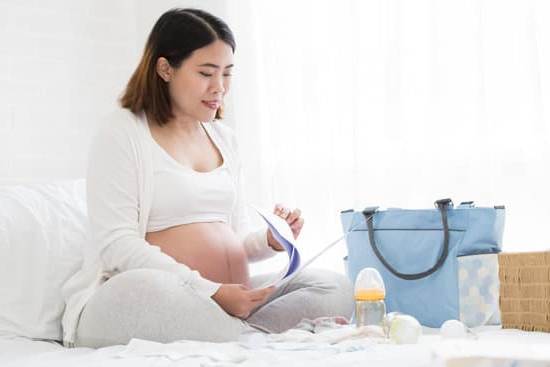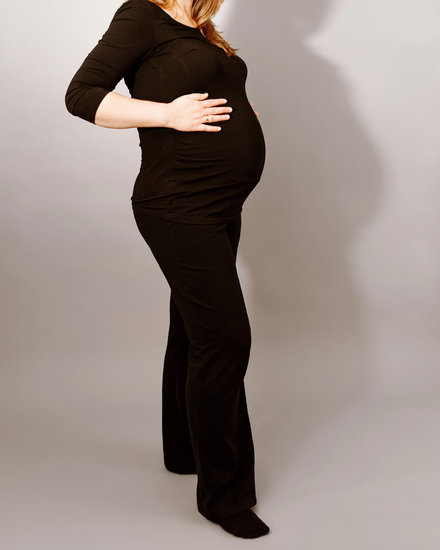Are you wondering how soon you can confirm your pregnancy? Understanding the maximum number of days to confirm a pregnancy is crucial for those who are eagerly waiting for that positive result. In this article, we will explore the different methods and timelines for confirming pregnancy, including the early signs and symptoms to look out for, pregnancy testing options, and factors that can affect the accuracy of the results.
Confirming a pregnancy is an important milestone for many women, and understanding when and how to do so can alleviate uncertainties and provide peace of mind. By learning about the earliest days to confirm a pregnancy through various testing methods, individuals can better navigate this exciting yet sometimes nerve-wracking time in their lives.
In addition to discussing how many days it takes to confirm a pregnancy using different tests, we will also cover false-positive and false-negative results, as well as when it’s best to seek professional medical advice. Whether you are experiencing symptoms or simply planning ahead, this article will provide valuable information on confirming pregnancy effectively and accurately.
Understanding the Menstrual Cycle and Ovulation
The menstrual cycle and ovulation play a crucial role in understanding how pregnancy can be confirmed. The menstrual cycle, on average, lasts about 28 days, although it can range from 21 to 35 days in adult women and from 21 to 45 days in young teens. This cycle is divided into two phases: the follicular phase and the luteal phase.
During the follicular phase, which starts on the first day of your period, the body’s hormone levels rise to help the ovaries mature an egg for ovulation. Once the egg is released during ovulation, it travels through the fallopian tube where it may be fertilized by sperm if present. Ovulation typically occurs around day 14 of a 28-day cycle, but it can vary based on the length of your menstrual cycle.
A key point to consider when trying to confirm pregnancy is that sperm can survive in the female reproductive tract for up to five days, while an egg can be fertilized within 12-24 hours after ovulation. This means that pregnancy can occur if intercourse takes place in the days leading up to or on the day of ovulation.
Therefore, understanding your menstrual cycle and tracking ovulation can provide valuable insight into when you might have conceived and when you should confirm a possible pregnancy.
- Understanding your menstrual cycle and ovulation timeframe can help determine when pregnancy may have occurred
- The fertile window for conception extends from approximately five days before ovulation until one day after ovulation
- Tracking methods such as basal body temperature charting and ovulation predictor kits can assist in identifying when you are most likely to conceive
Early Signs and Symptoms of Pregnancy
When a woman is trying to determine whether she is pregnant, it can be an anxious and uncertain time. One of the first indicators of pregnancy can be the appearance of certain early signs and symptoms. While these may vary from woman to woman, there are some common indicators that may signal the beginning of pregnancy.
Some early signs and symptoms of pregnancy include:
- Missed Period: This is often one of the first signs of pregnancy, especially for women with regular menstrual cycles.
- Implantation Bleeding: Some women experience light spotting when the fertilized egg implants in the uterus.
- Changes in Breast Sensitivity: Many women notice their breasts feeling tender, swollen, or sensitive as an early sign of pregnancy.
- Nausea and Fatigue: Morning sickness and feeling tired are common symptoms experienced by many pregnant women.
It’s important to note that not all women will experience these symptoms, and some may mistake them for signs of an impending period. However, paying attention to your body and being aware of these potential indicators can help in determining whether a pregnancy test should be considered.
If any of these early signs or symptoms are present, it may be time to consider taking a pregnancy test. Understanding how soon different tests can detect pregnancy is important for accurately confirming a possible pregnancy.
Pregnancy Testing Options
When it comes to confirming pregnancy, there are two main options for testing: taking a home pregnancy test or visiting a healthcare professional for a clinic-administered test. Both options have their own set of advantages and considerations, and the choice ultimately depends on individual preferences and circumstances.
Home Pregnancy Tests
Home pregnancy tests are easily accessible and can be purchased at most drugstores without a prescription. These tests work by detecting the presence of the human chorionic gonadotropin (hCG) hormone in urine, which is produced during early pregnancy. They are convenient as they can be done in the privacy of your own home, and they provide quick results within minutes. However, it is important to follow instructions carefully and to take the test at the right time for accurate results.
Clinic-Administered Tests
Clinic-administered pregnancy tests are conducted by healthcare professionals in medical settings such as hospitals or clinics. These tests may also involve blood work to measure hCG levels. While clinic-administered tests may cost more and require scheduling an appointment, they offer the advantage of being conducted by trained professionals who can provide counseling and support. Additionally, these tests may offer earlier detection of pregnancy compared to some home tests.
It’s important to weigh the pros and cons of both options when deciding how to confirm pregnancy. Understanding how each type of test works, their accuracy rates, cost, timing, convenience, and any personal preferences or concerns will help individuals make an informed decision on which option suits them best for confirming their pregnancy.
Overall, whether you choose a home pregnancy test or a clinic-administered test, it’s essential to seek confirmation as soon as possible after experiencing symptoms or suspecting that you might be pregnant to begin prenatal care if needed.
Factors Affecting the Accuracy of Pregnancy Tests
When it comes to confirming pregnancy, the accuracy of the pregnancy test is crucial. Various factors can affect the accuracy of pregnancy tests, including timing, method of testing, and underlying health conditions.
The timing of the pregnancy test is a key factor in determining its accuracy. Different pregnancy tests have different sensitivities and may be able to detect the pregnancy hormone, human chorionic gonadotropin (hCG), at different levels. For example, some tests claim to detect pregnancy as early as six days before a missed period, while others may require you to wait until after your missed period for accurate results.
Additionally, the method of testing can also impact accuracy. Home pregnancy tests come in different forms, including strips, midstream tests, and digital tests. Each method has its own set of instructions that must be followed carefully to ensure accurate results. On the other hand, clinic-based blood tests are considered more accurate than home tests as they can detect lower levels of hCG.
Underlying health conditions such as polycystic ovary syndrome (PCOS) or early miscarriage can also affect the accuracy of pregnancy tests. Women with PCOS may have higher levels of hCG even if they are not pregnant, resulting in false-positive results. Similarly, women who have recently experienced a miscarriage may still have hCG in their system for a few weeks after the loss of the pregnancy, leading to misleading results.
Ultimately, understanding these factors affecting the accuracy of pregnancy tests can help individuals make informed decisions about when and how to confirm their pregnancies accurately.
Maximum How Many Days to Confirm Pregnancy With Different Tests
When it comes to confirming a pregnancy, many women want to know how soon they can accurately determine if they are expecting. The good news is that there are several testing options available, each with different maximum days for confirmation. Understanding the different tests and their timelines can help provide peace of mind during an anxious time.
One of the most common methods of confirming pregnancy is through a home pregnancy test. These tests work by detecting the presence of the hormone human chorionic gonadotropin (hCG) in urine, which is produced during pregnancy. Home pregnancy tests can usually detect hCG levels about 11 days after conception, with some tests claiming to be accurate as early as 6 days before a missed period.
For those who prefer a blood test, also known as a quantitative hCG test, these can confirm pregnancy even earlier than a home urine test. Blood tests can detect hCG levels as early as 7-12 days after ovulation. Some blood tests are so sensitive that they are capable of detecting hCG in the bloodstream within just 8-9 days after ovulation.
It’s important to remember that individual factors such as the accuracy of ovulation tracking and the regularity of menstrual cycles can affect the timing of when a pregnancy can be confirmed. It is always best to consult with a healthcare professional if there is any doubt or confusion about the results of a home pregnancy test or other concerns related to confirming a suspected pregnancy.
| Pregnancy Test Type | Maximum Days for Confirmation |
|---|---|
| Home Pregnancy Test | About 11 days after conception |
| Blood Test (Quantitative hCG) | As early as 7-12 days after ovulation |
False-Positive and False-Negative Results
When it comes to pregnancy testing, it is important to be aware of the potential for both false-positive and false-negative results. A false-positive result occurs when a pregnancy test indicates that a woman is pregnant when she is not, while a false-negative result occurs when a test indicates that a woman is not pregnant when she actually is.
There are several factors that can contribute to false-positive or false-negative results. One common reason for a false-negative result is taking the test too early in the pregnancy.
It takes time for the hormone hCG (human chorionic gonadotropin) to build up to detectable levels in the body, so testing too soon after conception can lead to a negative result even if a woman is actually pregnant. On the other hand, false-positive results may be caused by certain medications or medical conditions that can interfere with the accuracy of the test.
It’s also worth noting that different types of pregnancy tests have different sensitivities, which can affect their accuracy. For example, some home pregnancy tests are designed to detect lower levels of hCG than others, making them more sensitive and potentially able to confirm pregnancy earlier than less sensitive tests. Similarly, blood tests performed at healthcare clinics or doctor’s offices are generally more sensitive than urine tests and may be able to confirm pregnancy earlier.
| Factor | Effect on Test Accuracy |
|---|---|
| Timing of Test | Taking the test too early can lead to a false-negative result. |
| Medications/Medical Conditions | Certain medications or medical conditions can cause false-positive results. |
| Test Sensitivity | Tests with higher sensitivity are able to detect lower levels of hCG and may confirm pregnancy earlier. |
In order to minimize the risk of receiving inaccurate results, it’s important for women who suspect they may be pregnant to carefully follow the instructions provided with their chosen pregnancy test. If there is any uncertainty about the meaning of a particular result, or if repeated testing produces conflicting results, it’s essential for women to seek guidance from a healthcare professional.
Whether confirming an unexpected positive result or trying to understand why an expected positive result has not appeared within the maximum how many days to confirm pregnancy based on different types of tests, consulting with a doctor can provide reassurance and accurate information about next steps.
When to Consult a Healthcare Professional
Importance of Seeking Medical Advice
If you have taken a home pregnancy test and received a positive result, or if you are experiencing symptoms of pregnancy but are unsure of the results of your test, it is important to consult a healthcare professional. A doctor or midwife will be able to provide confirmation of your pregnancy and offer guidance on the next steps to take. Seeking medical advice early in your pregnancy is crucial for receiving appropriate prenatal care and support.
Confirming Pregnancy With a Blood Test
One of the most accurate ways to confirm pregnancy is through a blood test, which can detect pregnancy earlier than urine tests. A blood test can measure the level of hCG (human chorionic gonadotropin) in your body, which is a hormone produced during pregnancy. If you suspect that you may be pregnant but have received negative results from multiple home pregnancy tests, consulting a healthcare professional for a blood test is recommended.
Discussing Pregnancy Options and Health Guidelines
Consulting with a healthcare professional also allows you the opportunity to discuss your options and receive important information regarding prenatal care. Your doctor or midwife can provide valuable guidance on maintaining a healthy lifestyle during pregnancy, including diet, exercise, and avoiding substances that may be harmful to the baby. Additionally, they can address any concerns or questions you may have about the early stages of your pregnancy, ensuring that you receive accurate and reliable information throughout this critical time.
Conclusion and Recap of Key Points
In conclusion, confirming a pregnancy is an important moment in a woman’s life, and there are various factors to consider when doing so. Understanding the menstrual cycle and signs of ovulation can provide valuable insight into the timing of a potential pregnancy. Early signs and symptoms, such as missed periods and morning sickness, can also indicate the need for a pregnancy test.
When it comes to confirming a pregnancy, individuals have the option of using home testing kits or seeking confirmation from a healthcare professional at a clinic. However, it is crucial to be aware of the factors that can affect the accuracy of these tests, such as timing and the sensitivity of the test itself.
Different tests offer varying windows for maximum accuracy in confirming pregnancy, with some being able to provide reliable results as early as six days before a missed period. However, false-positive and false-negative results are also possible, so it is important to approach pregnancy testing with caution and seek consultation from a healthcare professional if there are any doubts or concerns.
Ultimately, when in doubt about confirming a pregnancy or if facing inconclusive results, it is advisable to consult with a medical professional for guidance and support. The journey to confirming a pregnancy can be an anxious time for many individuals, but by understanding the available options and seeking reputable advice when needed, one can navigate this process confidently.

Welcome to my fertility blog. This is a space where I will be sharing my experiences as I navigate through the world of fertility treatments, as well as provide information and resources about fertility and pregnancy.





